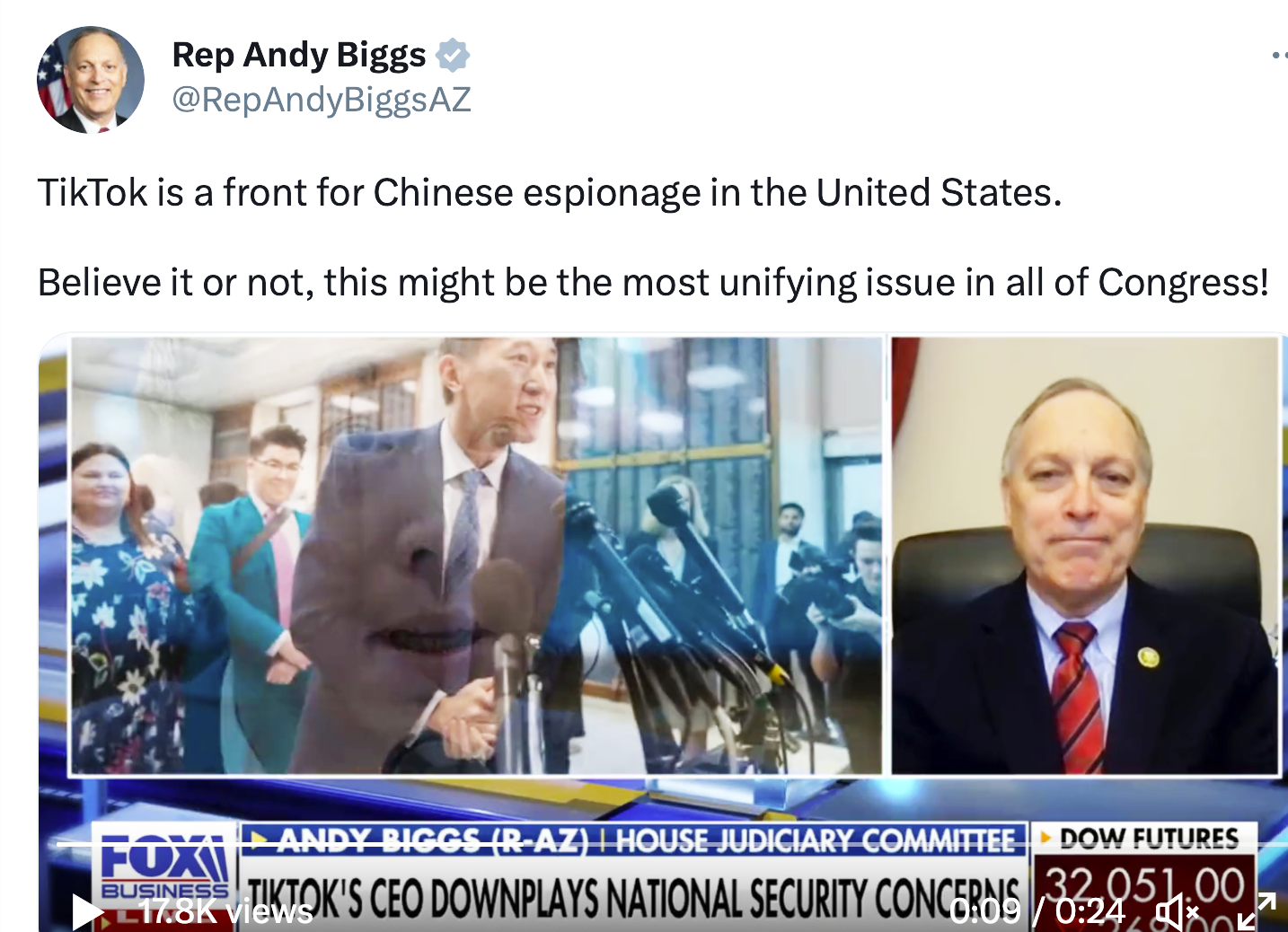By Tara Kavaler || The Arizona Republic
U.S. policymakers have been grappling with whether to ban TikTok, a social media platform where users can upload and watch short videos.
A potential ban on the Chinese-owned service is noteworthy because support is not necessarily based on partisan lines, with members of Congress in both parties both supporting and opposing the idea.
Congress is contemplating several pieces of legislation that would ban TikTok, including the bipartisan Restricting the Emergence of Security Threats that Risk Information and Communications Technology (Restrict) Act.
The Restrict Act is bipartisan legislation that would give the U.S. secretary of Commerce increased powers to regulate technology from six “foreign adversary” countries. Those powers would include banning usage. The countries included are China, North Korea, Iran, Russia, Venezuela and Cuba.
Another bill is the Deterring America’s Technology Adversaries Act, or DATA Act, which was introduced in the House Foreign Affairs Committee by its chair, Rep. Michael McCaul, R-Texas, and passed with only Republican support. The bill would give President Joe Biden the authority to bar apps that present a national security risk.
TikTok is owned by the Chinese company ByteDance, and supporters of a ban argue that the Chinese Communist Party could use the social media platform to obtain data about American users or try to spread propaganda. They argue that use of the platform is a national security and personal privacy risk.
However, there are practical, political and legal concerns about any potential ban, such as whether it is too large a platform to ban. With TikTok’s 150 million users, Congress would risk alienating young voters who use it, and possibly infringe on protected free speech under the First Amendment.
The Biden administration is reported to have told TikTok that it would not allow the app to be used in the U.S. unless its Chinese owners divested from the company. However, in the first year of his term, Biden rescinded an executive order by former President Donald Trump that would ban the platform, opting instead to have government agencies review potential risks.
Legislation in Congress comes as approximately half of U.S. states have enacted some sort of restriction against using the app on devices used for government business. This includes Arizona, where Democratic Gov. Katie Hobbs signed an April 5 executive order to prohibit the program on most computers and cellphones that the state owns or rents.
Here is what members of Arizona’s congressional delegation have been saying about a TikTok ban.








